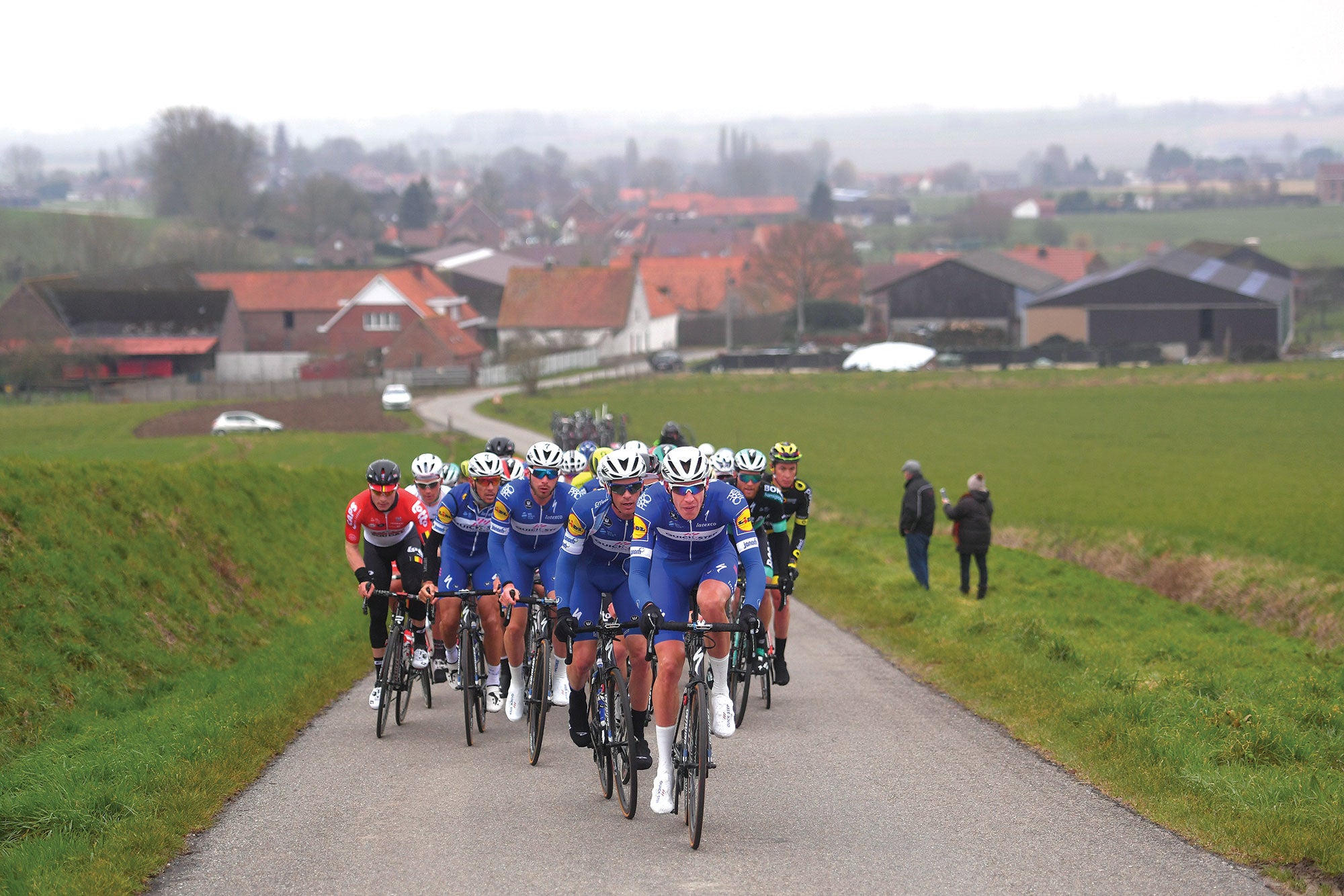VeloNews Awards 2018: Quick-Step Floors, team of the year

Photo: Tim de Waele | Getty Images (File).
Pro cycling’s winningest team in 2017 did not appear poised for similar success in 2018.
Belgium’s Quick-Step Floors was completely reshaped at the end of last season. The team’s longtime star, Tom Boonen, retired in April; sprint ace Marcel Kittel departed for Katusha-Alpecin in December. The squad’s sole GC rider, Dan Martin, also left the team, jumping to UAE-Team Emirates.
How can you win when all of your stars leave?
Yet throughout 2018, Quick-Step found ways to win with a variety of riders. If the team previously relied on Boonen and other leaders to tally the victories, this season Quick-Step adopted a more egalitarian attitude. Anyone was capable of victory, even lesser-known riders from the bottom of the roster. The squad lived up to the nickname it received from director Brian Holm: “The Wolfpack.”
The squad’s democratic attitude resulted in a huge rate of success. At press time, the team had 73 total professional wins, 38 of them at WorldTour races. Only Team Sky came close to that total.
So, who won for Quick-Step in 2018? New hire Elia Viviani galloped to early wins in the winter and spring, followed shortly after by sprint ace Fernando Gaviria and lead-out man Max Richeze. The squad’s domestiques got in on the victory march, too: Remí Cavagna, Fabio Jakobsen, and Álvaro Hodeg scored throughout the spring.
Quick-Step then dominated the classics. Starting with Le Samyn on February 27 all the way through Liège-Bastogne-Liège on April 22, the Wolfpack won 11 races on home soil in Belgium. Better still, it won WorldTour races E3 Harelbeke and Dwars door Vlaanderen, before taking two of the three hilly classics: La Flèche Wallonne and Liège. But the ultimate prize was Belgium’s Super Bowl, the Tour of Flanders. Not only did Niki Terpstra win that monument, his Quick-Step teammate Philippe Gilbert hopped on the podium in third as well.
“Sometimes you give, and sometimes you get back,” Terpstra said about his team’s all-for-one attitude.
The Wolfpack was just getting warmed up. The team won five stages at the Giro d’Italia (four by Viviani, one by Maximilian Schachmann). Its riders won national championships in Belgium, Italy, Denmark, and Luxembourg.
The Tour de France was the stage for some of Quick-Step’s highest highs and its lowest lows. Gaviria delivered on his promise as pro cycling’s next top sprinter, winning two sprint stages. Julian Alaphilippe thrilled French fans by winning two stages and the King of the Mountains polka-dot jersey. But Gilbert, a veteran rider who’s quickly become one of the team’s key leaders, crashed on stage 16 to Bagneres-de-Luchon, breaking his kneecap. The former world champion rolled across the finish line visibly in pain; his blood-soaked sock covered gashes and cuts.
It was an awful crash, one that we deemed the most terrifying moment of the year. It put Gilbert out of the race and on the injured reserve list for weeks.
The setback did not stall Quick-Step’s victories. Alaphilippe kept rolling with a win at Clasica San Sebastian. Then the team won four stages at the Vuelta a España. That brought Quick-Step’s grand tour stage win tally up to an unheard of 13 stage victories in one season.
By September, 17 riders from the 30-man squad had taken professional victories. As if that wasn’t enough to emphasize Quick-Step’s team-first approach, it won the team time trial world championship by 18 seconds.
Not to be outdone, Gilbert returned to his winning ways. On the same day as the team time trial worlds, Gilbert attacked through the rain to win Grand Prix d’Isbergues in France. It was his first victory of the season.
“What a day it has been for us, taking two victories, at the worlds in Innsbruck and here,” Gilbert said. “It’s just fantastic to be part of the Wolfpack!”